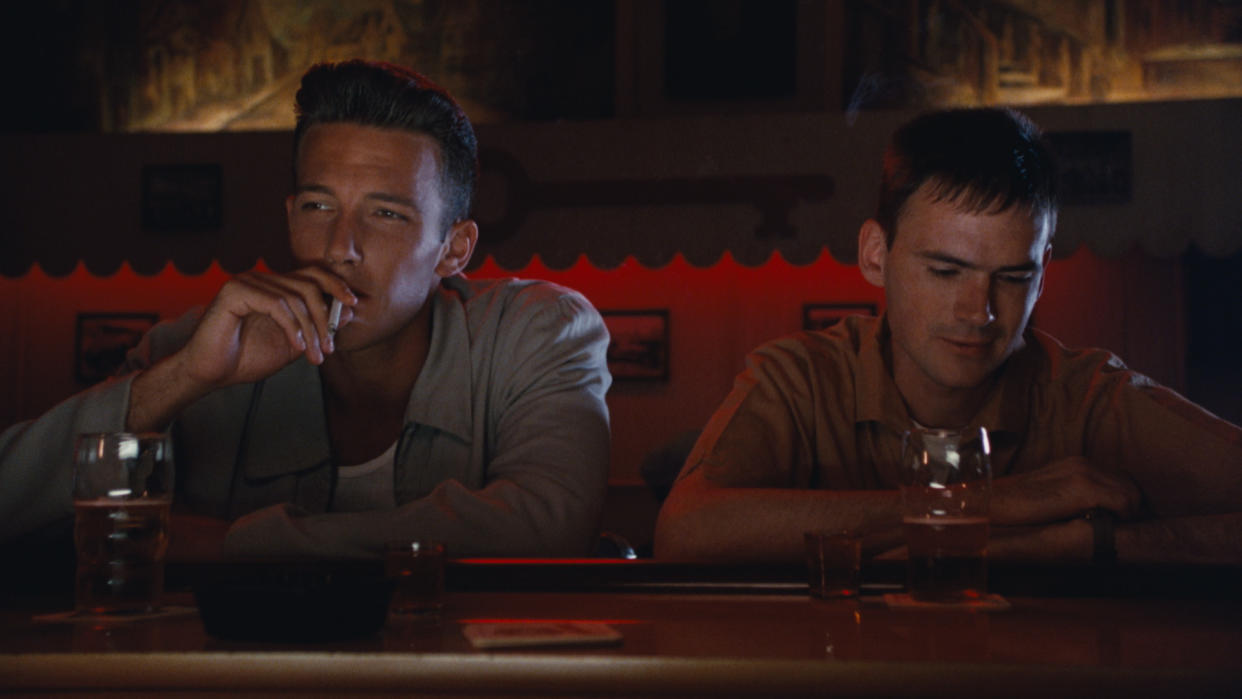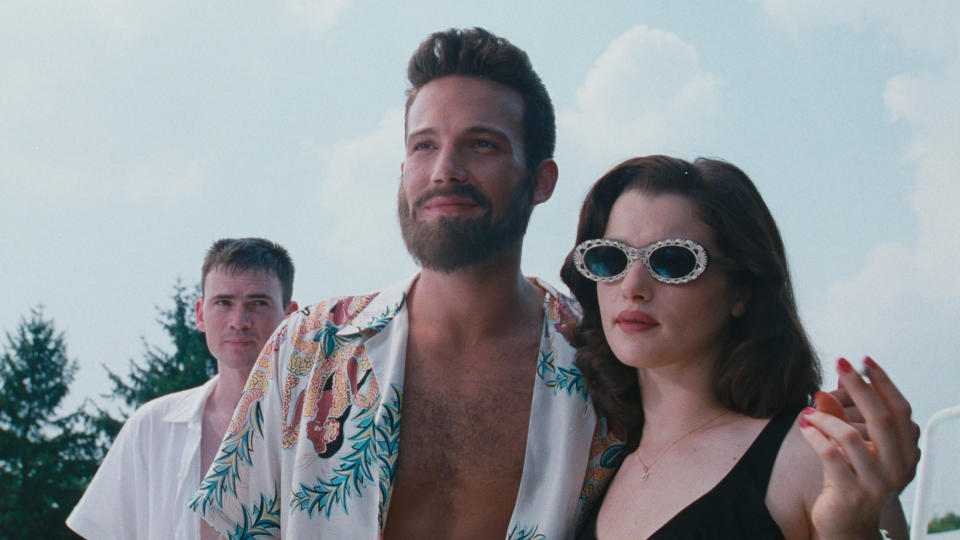‘Going All the Way’ Is Finally the Movie Mark Pellington Envisioned 25 Years Ago

- Oops!Something went wrong.Please try again later.
- Oops!Something went wrong.Please try again later.
In 1997, Mark Pellington made his feature directorial debut with “Going All the Way,” based on Dan Wakefield’s novel of the same name. Telling the story of two Korean War veterans returning to their hometown of Indianapolis in the 1950s, the film featured an impressive cast of then-unknowns — Ben Affleck, Jeremy Davies, Rachel Weisz, Rose McGowan, and Nick Offerman among them. The film screened at Sundance, got solid reviews and a distribution deal… and then disappeared for 25 years. Pellington, while proud of the film, never felt like he quite captured what he had loved about Wakefield’s book, and the various edits the movie went through — from a three-hour-plus rough cut to the 112-minute Sundance version to the 97-minute movie that was ultimately released in theaters — left him feeling like he had taken the guts out of the story.
Decades later, while he was digging around in his office during the COVID lockdown, Pellington made an exciting discovery. “I found an old Betacam tape,’” Pellington told IndieWire. “It was three-and-a-half hours long and had everything my editor Leo Trombetta had assembled when we came back from the shoot in Indianapolis.” Pellington and Trombetta looked at the footage and decided to create a new edit to keep themselves occupied during the pandemic. After digitizing the Betacam footage they took out around 20 minutes of material and added 50 minutes that had been cut, drastically reinventing “Going All the Way” while reconnecting the film with the spirit of its source material.
More from IndieWire
“We were just doing it for fun,” Pellington said, but then he realized that Village Roadshow, with whom he was developing TV series based on his movies “Arlington Road” and “The Mothman Prophecies,” owned “Going All the Way” as part of their acquisition of the Lakeshore Pictures library. “I said, ‘You know, you have an unseen Ben Affleck movie that never got to cable or streaming or TV.’” Seeing the financial upside of putting such a film back into the marketplace, Lakeshore brought Oscilloscope Laboratories on board as a partner to produce the restoration and reconstruction. Initially Pellington thought he might be able to create a new version simply by uprezzing and color correcting the Betacam, but “it looked terrible,” and the detective work of compiling the original film elements began.
“It was like an archaeological dig,” Pellington said. Working off of edge numbers on the Betacam and a VHS copy of the Sundance cut, Pellington began working with Fotokem to try to find the negatives for the corresponding scenes, then recruited editor and videographer Joe D’Augustine to go through the piles of footage to excavate what was needed. Some scenes only existed in a workprint, some as original negative, but ultimately Pellington and his collaborators were able to find everything they needed, scan it in 4K, and color correct it to smooth out the inconsistencies – for the most part. A suicide scene that was not in the theatrical cut but is integral to the new version came from a workprint, so it was “really shitty,” in Pellington’s words, but the raw quality actually works for the film emotionally — as do all of the other alterations that make “Going All the Way” virtually a completely different movie from the one audiences saw in 1997.

Oscilloscope Laboratories
The end result is not only more faithful to the novel, but a richer, more complex and powerful movie — a coming of age movie by a young man reimagined by a middle-aged director bringing all his life and filmmaking knowledge to the table. “I had only done commercials and music videos, so I felt good about each individual scene, but I would put a satirical scene with a wide lens next to something more real, and it felt uneven,” Pellington said. “Years would go by and I’d see movies like ‘American Beauty’ and other things that made me realize ways I could blend these tones together now that I had a little more experience.”
One way the new “director’s edit” brings cohesion to the tone is a voiceover narration spoken by Trombetta that incorporates more of Wakefield’s text. “Leo had cut Todd Field’s movie ‘Little Children,’ and I loved the voiceover in that,” Pellington said. “I felt like it allowed me to finally capture the feeling of this book that I loved growing up in a way that no other version of the movie really had.” Pellington also brought in his frequent collaborator Pete Adams to compose nearly an hour of new score, and replaced the original opening titles with a sequence by Sergio Pinheiro that establishes a haunting, seductive tone for the film — one more in keeping with the shift from the original version’s emphasis on teen sex comedy to the darker, more dramatic, yet ultimately more uplifting and touching film Pellington has now created.
The movie is also a fascinating time capsule of a moment when its stars were all right on the verge of breaking through. “When I watch it now, I remember what made me love them in the first place,” Pellington said. With Oscilloscope releasing the movie theatrically around the country and planning a deluxe Blu-ray/DVD release, audiences will have the opportunity to be reminded as well. After two years of hard work on the project, Pellington is grateful and moved by the opportunity to revisit his early work. “No filmmaker gets this kind of chance,” he concluded. “I’m just super proud that we pulled it off.”
Best of IndieWire
Sign up for Indiewire's Newsletter. For the latest news, follow us on Facebook, Twitter, and Instagram.

